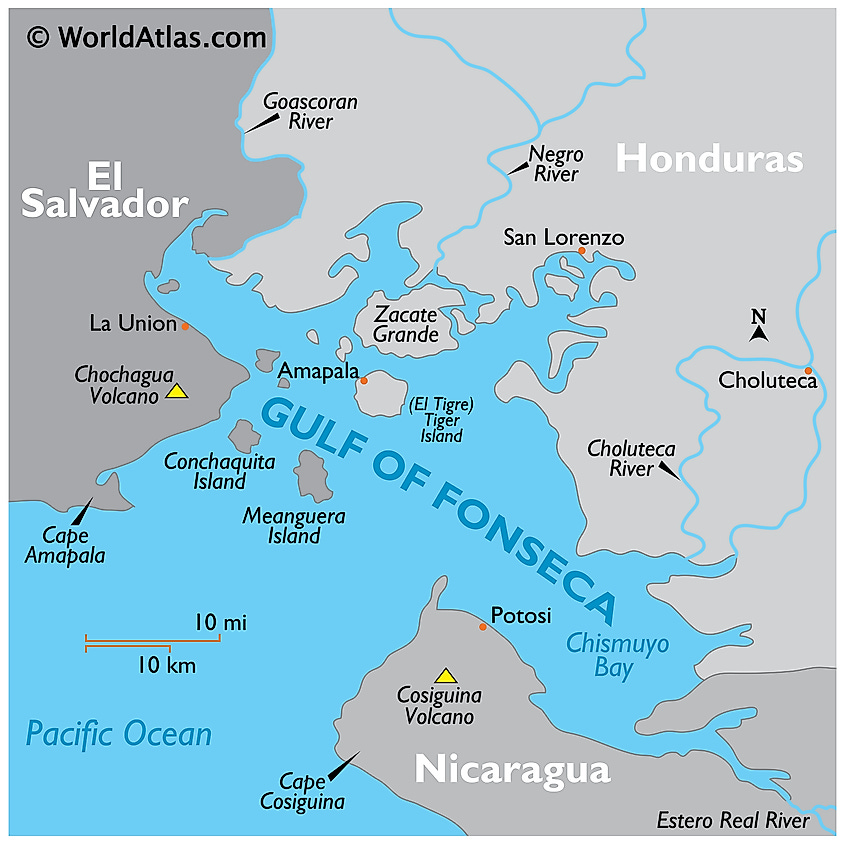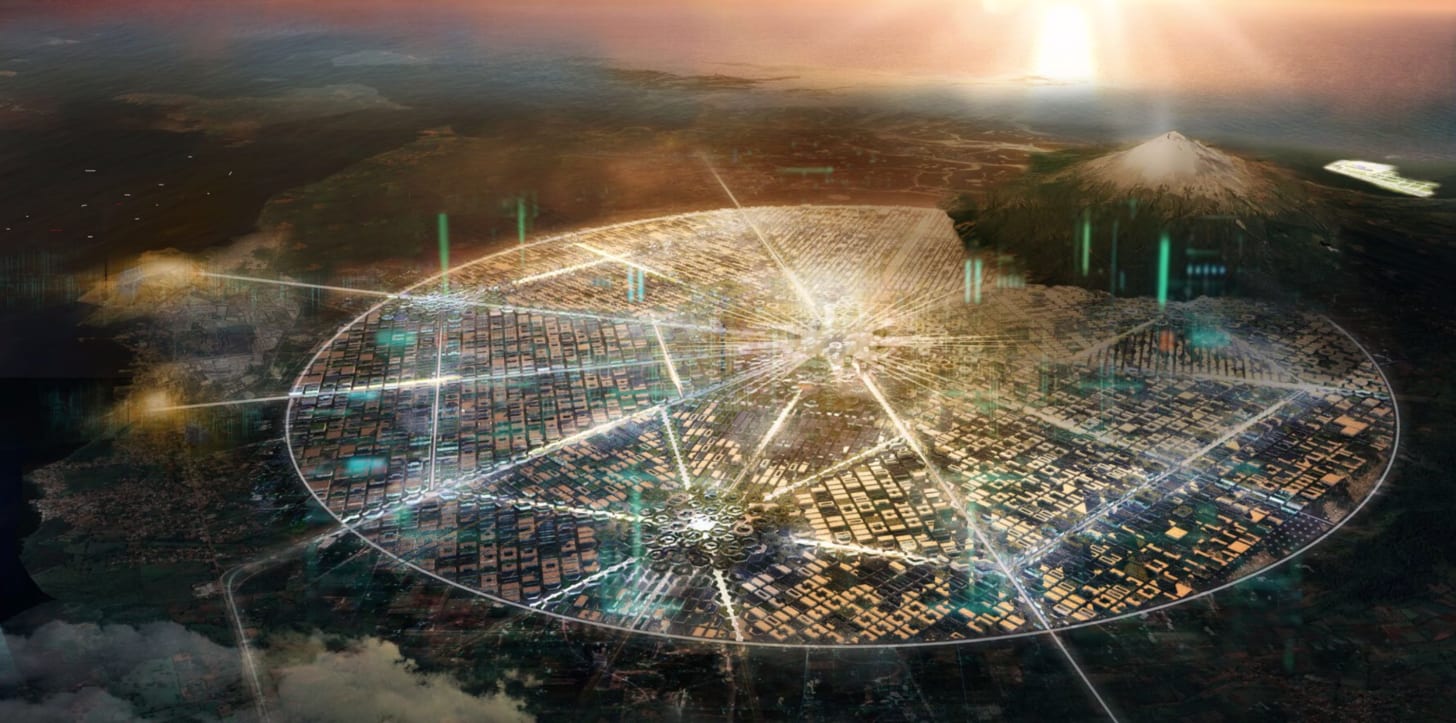Can El Salvador be the next Singapore?
The odds are against them, but it's worth trying!
[This essay is part of The Tech Progressive Writing Challenge 2. Join the conversation in the build_ Discord.]
During my trip to El Salvador, I was surprised: #Singapur (“Singapore,” in Spanish) was trending on Twitter! Locals even tweeted quotes of Lee Kuan Yew, Singapore’s founding father:
“If you want to defeat corruption, be prepared to send your friends and relatives to jail.” (not sure this quote is genuine…)
The President CEO of El Salvador himself often mentions Singapore (e.g., after a mayor from his own party was arrested for a crime):


Below his tweets, several Salvadorans present Singapore as an example to follow. Are these accounts real? Hard to tell. But does it make sense to compare Singapore and El Salvador, two countries that are so different?
A Tale of Two Countries
Seventy years ago, Singapore and El Salvador had similar GDP per capita! Singaporeans and Salvadorans were about 10 times poorer than Americans. Today, Singapore has the second-highest GDP per capita (PPP) in the world after Luxembourg, but Salvadorans are still 7 times poorer than Americans.

Singapore’s success is mainly due to its founder’s incredible strategy and execution, making it a major financial, business, and shipping center. Could El Salvador follow the same path?
Crime and corruption
The effective control of crime and corruption is one of the reasons for Singapore’s success. Nayib Bukele—who doesn’t belong to the two parties that have dominated the Salvadoran political life for decades—was elected on an anti-corruption platform with the slogan: “There’s enough money when no one steals.”
Bukele also launched a “Territorial Control Plan” to reduce crime: increased police presence, modernization of the police, and reconstruction of the local communities. In 2015, El Salvador was the deadliest country outside a war zone. Since then, the number of homicides has been divided by 6! Last month, the International Monetary Fund lauded El Salvador’s “major advances in some high-profile anti-corruption cases” and its “efforts to reduce crime.” However, last week, the US Department of the Treasury’s Office of Foreign Assets Control said Bukele negotiated a truce with imprisoned gang leaders, offering them prostitutes and cell phones in jail to ensure that violence remained low. If that’s all they gave to gangs, it looks like a great deal to save thousands of innocent human lives! On the other hand, the US also sanctioned two government officials for corruption, as they stole government-purchased goods destined for COVID-19 pandemic relief.
I stayed in tourist areas and felt safe in El Salvador. Probably as safe if not safer as in Paris, where I come from, or in San Francisco, where I flew after El Salvador. So there’s still a long way to go for El Salvador to be as safe as Singapore, but it seems to be heading in the right direction!
Infrastructure
Before my trip, I read that El Salvador had terrible infrastructure. I was surprised to arrive at a modern and efficient airport and see that most main roads were brand new.
I don’t know how these renovations are financed. After El Salvador cut ties with Taiwan in 2019, China promised $500 million in development projects, including $200m to support “Surf City.” However, according to the Center for Strategic and International Studies: “El Salvador has not yet seen Chinese companies play a significant role in road and bridge construction.” And the renovation of the airport was designed by an American company. So it seems that El Salvador is quickly modernizing its infrastructure with local funds!
Geostrategic position
Singapore is strategically located in the Malacca Strait as a trading and logistics hub. Similarly, El Salvador links the Pacific to Latin America. For instance, a converted LNG carrier recently arrived from Singapore to create a gas terminal and an LNG power plant in El Salvador—making it a net exporter of electricity. This was the largest private infrastructure investment ever in El Salvador. According to CSIS, this American investment attempted to counter China’s progress in El Salvador.
For China, El Salvador could indeed be the gateway to the Americas. China proposed to build a multimodal hub in La Unión, with a deep water port and a new airport. This hub would be located in the Gulf of Fonseca at the intersection of Salvadoran, Honduran, and Nicaraguan territory, giving China access to El Salvador’s neighbors. The US is worried this port could include a military base. Like Singapore, it seems that El Salvador is trying to balance its relations with China and the US and befriend!

Cultural links to the regional power
66% of Singaporeans are ethnic Chinese, and there are strong links between China and Singapore. So Singapore benefited a lot from China’s growth. In parallel, 2.5 million Salvadorans live in the US. Lee Kuan Yew made English and Mandarin Chinese official in Singapore. Today, Spanish is the only official language in El Salvador, it connects the country to other Spanish-speaking territories, especially in Latin America. El Salvador could probably benefit from adopting English as its second official language. It would be way easier for investors to navigate through its laws.
Business-friendly environment
Singapore’s economy has been ranked the freest in the world. El Salvador still ranks relatively low in that regard. A French entrepreneur told me it took him one year and a half to open his business there. The Salvadoran government has announced a plan to cut red tape; let’s hope they’ll do it!
Democracy and political freedoms
Both Singapore and El Salvador are regularly accused of being authoritarian. For instance, Singapore is among the worst countries in the world in the 2021 World Press Freedom Index. So that’s maybe an area where El Salvado shouldn’t follow Singapore. Unless you initially need a strong leader to build a new state? In that case, Bukele scored some points… For instance, according to Human Rights Watch, he entered the Legislative Assembly with armed soldiers last year in an apparent effort to intimidate legislators into approving a loan for security forces. And he arrested a critic of his Bitcoin Law. In an interview, El Salvador’s vice-president recognized that the president currently held the executive, legislative, and judiciary power. For him, this absence of separation of powers is a temporary necessity as El Salvador needs to be entirely reformed after decades of nepotism.
You can have economic freedom without political freedom, but you cannot have political freedom without economic freedom.—Friedrich Hayek
Like Milton Friedman and Friedrich Hayek, I believe that economic freedom is a precondition for political freedom. Eventually, as Salvadorans get richer and have more economic opportunities, the country will respect more other human rights. So I’m optimistic about civil liberties, provided that the economy improves.
Bitcoin City
On November 20, Bukele announced the creation of “Bitcoin City.” This city built from scratch will be powered by geothermal energy from the nearby volcano. It will be funded by “Bitcoin bonds” and free of income, property, and capital gains taxes. Bitcoin City will be ideally located… next to the future multimodal hub of La Unión built by China. With Bitcoin City, Bukele wants to make El Salvador… the “Singapore of Latin America”!
There have been many attempts to build cities from nothing in developing countries and attract people with tax incentives. As far as I know, all of these experiments failed. People move to cities for their ecosystem, not for the low taxes. You need businesses, schools, restaurants, museums, and a vibrant local community, not only low taxes!
However, with this name, Bukele is leveraging an existing community—Bitcoiners—who now sees El Salvador as a safe haven. They have a reason to move, more compelling than low taxes: to live with like-minded people sharing their values. This cloud community now has a piece of land. And if enough of them move to El Salvador and invest there, it will transform the country! Could the Bitcoin community and El Salvador be the first successful example of a “cloud country”?
Let’s hope for the best!
Singapore proved that a country can lift itself out of poverty in a few decades. Many challenges lie ahead for El Salvador to catch up after decades of slow growth, crime, and corruption. A few months ago, no one could locate El Salvador on a map. The eyes of the world are on El Salvador today. I wish them a successful transition and a prosperous and peaceful future. And with a 10.3% GDP growth in 2021, they’re already in the starting blocks!
The El Salvador Series:
Can El Salvador be the next Singapore? (this article)




